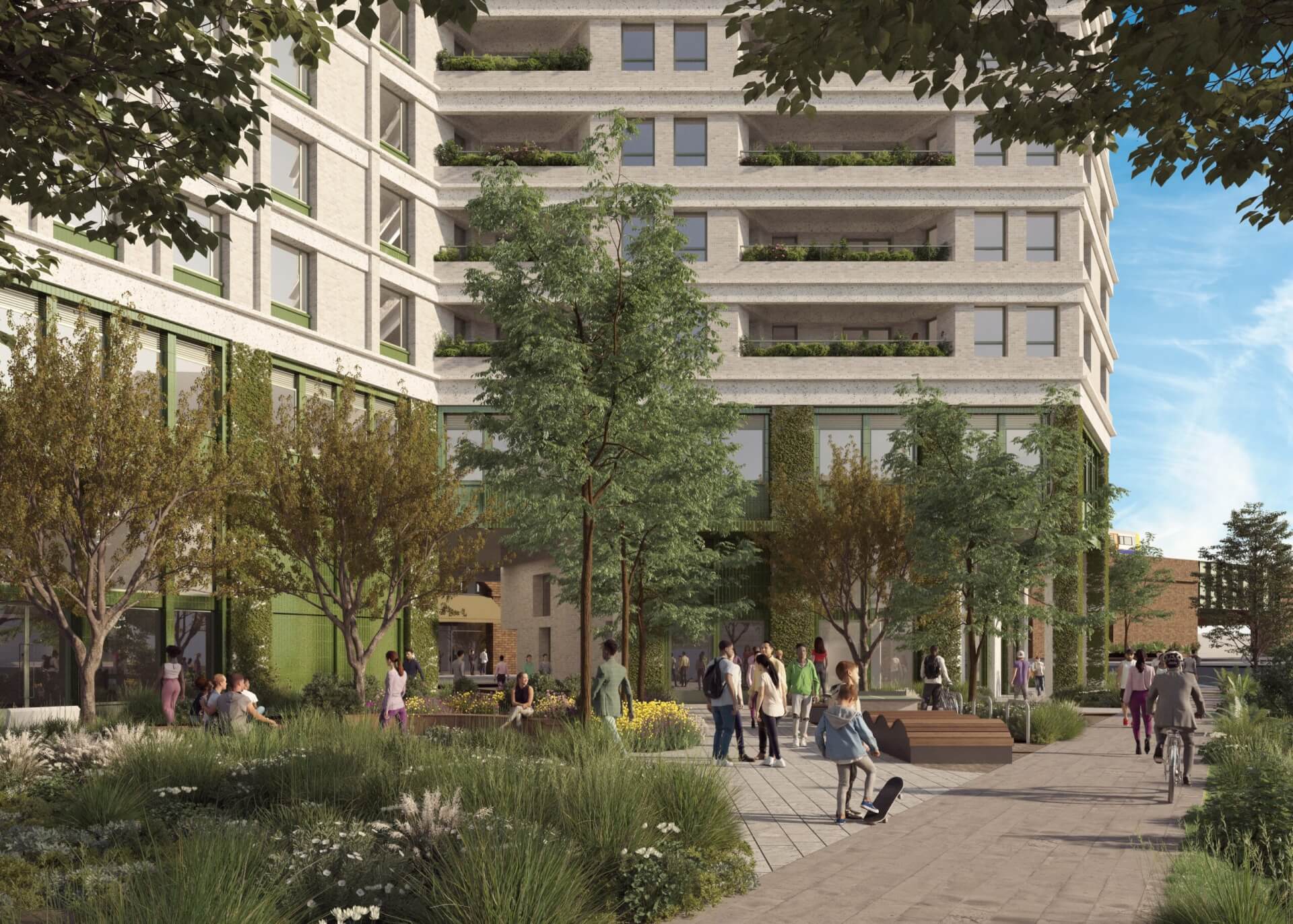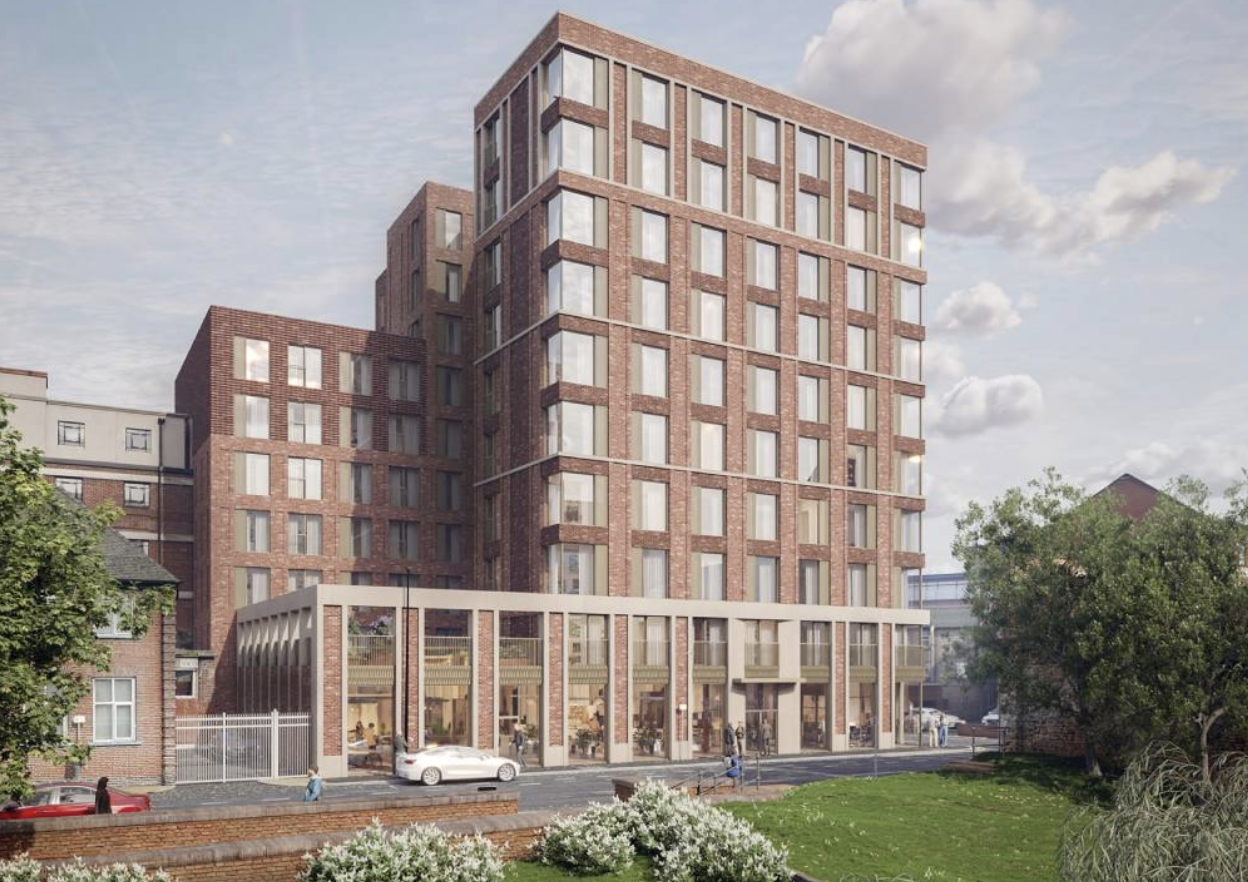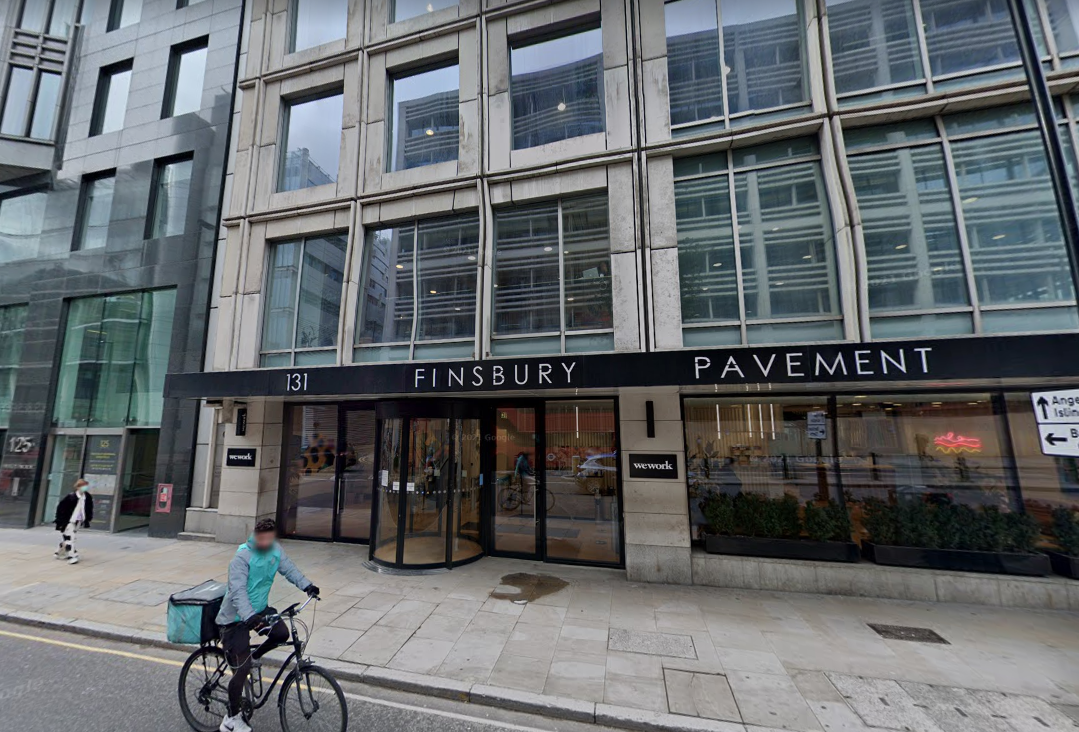Urban Living News revisits 10 stories that defined 2023 for the living and urban development sectors.
• Inconsistency in planning policy hindering London BTR sector
UK: A new report says BTR development in the capital is being stymied by “stark inconsistency” from local authorities.
Investment in new developments and demand has led to an increase in the number of BTR planning permissions in London. The report, published by planning and development consultancy Lichfields, provides an overview of the planning position in which these permissions have emerged, looking at policy at the GLA and the 32 borough levels (alongside the City and London’s Development Corporations). It identifies those authorities which are supportive of BTR and which are explicitly recognising the sector through policy.
The research reveals an inconsistency in how BTR is addressed across the capital, with 46 per cent of planning authorities making no reference to the schemes in their local plans. Two Boroughs (Islington and Royal Borough of Kensington & Chelsea) seek to restrict or limit BTR. Meanwhile, 41 per cent of bespoke BTR developments, secured via specific planning applications, were found to be in just four boroughs (Brent, Newham, Ealing and Enfield) and 45 per cent of bespoke sites are in inner London.
The report finds that although the London Plan provides a strong basis for BTR, local policies “consistently fail” to differentiate between for sale housing and BTR schemes, meaning applications for BTR are assessed against policy for private sale developments, which makes the process of addressing BTR-specific issues unnecessarily complex as applications have to justify departures from residential policies designed for traditional for sale schemes. .
Click here to read the full story.
• WeWork files for bankruptcy
US: WeWork, which was once valued at $47 billion, has been filed for bankruptcy in the US.
WeWork’s filing will give it protection from its creditors and landlords as it restructures its debts. Based on its latest share price, the company is now worth less than $50 million.
The bankruptcy will affect the company’s business in the US and Canada. The company said its coworking spaces remain open and operational, including in the UK.
The BBC has revealed the contents of an email to tenants in London, in which WeWork said it remained “fully committed” to providing its services and planned to remain “in the vast majority of our buildings”.
As of the end of June, the company had more than 700 sites around the world and about 730,000 members.
WeWork said in a statement late on Monday, that bankruptcy protection would allow it to “further rationalise its commercial office lease portfolio” while trying to ensure continuity for its users.
Click here to read the full story.
• UK senior living shortfall is more than 600,000 units, says new report
UK: A new report from CBRE says investment into mid-market senior living development is needed to address the shortage of facilities across the UK.
The survey analysed responses from more than 2,000 UK residents aged 55 and over, and found that 62 per cent of respondents are open to moving into a senior living scheme in the future.
Nearly a quarter – 24 per cent – of respondents are considering a move in the next five years, with demand highest in Edinburgh, Birmingham, London and Southampton, all cities where supply is “notably constrained”. The research found that more than 69,000 units would be needed across these cities alone to address the supply gap.
CBRE estimates that there is an undersupply of 614,000 senior living units across the UK.
“Historically, senior living schemes have targeted prospective residents who live in more affluent areas of the UK due to the high costs of land and construction,” noted Alice Marwick, head of operational real estate research at CBRE. “On a national scale, the majority of housing wealth distribution falls into the £250- £500k value segment, meaning there is a large cohort that would benefit from senior living schemes if there was a more affordable option.”
Click here to read the full story.
• Goodstone Living closes £550 million BTR fund
UK: Macquarie’s BTR platform Goodstone Living has closed its first fund, with more than £550 million investment capacity.
The Goodstone Living Partners 1 fund has secured equity investments from UK and international investors including Northern Local Government Pension Scheme (Northern LGPS).
The fund is focused on completing and operating rental residential communities across London and major regional UK cities, for long term ownership. Its initial portfolio comprises almost 1,000 homes already under construction in Edinburgh and Birmingham.
Iliya Blazic, chief executive at Goodstone Living, said: “The successful launch of our first managed fund and ability to attract high-quality institutional capital partners speaks to the confidence global investors have in the underlying fundamentals of the build-to-rent sector, as well as Goodstone Living’s vision of creating a better way to rent. We are excited to support our capital partners in creating next generation rental communities that integrate innovation, sustainability, wellbeing and customer service into every decision.”
Click here to read the full story.
• Chip Conley, Modern Elder Academy: “The future of later living will be intergenerational”
Eloise Hanson talks to Chip Conley, founder of JDV Hotels, the Modern Elder Academy (MEA) and former global head of hospitality at Airbnb, to learn more about the motivating reasons for launching MEA, the blurring of hospitality and living, and the future of regeneration and intergenerational communities.
Click here to listen to the podcast.
• European coliving sector to attract €2.6 billion investment in next three years
UK/Europe: Savills’ latest research in to the coliving market has found that 51 per cent of European investors plan to be active in the sector, making it the joint third most invested-in living asset class, alongside later living, but behind BTR and PBSA.
During 2022 in the UK, there were 2,000 new beds completed and opened to residents, more than doubling the number of operational coliving beds to 3,422. This trend is expected to continue, says Savills, with a further 4,999 beds currently under construction.
There has been a significant rise in UK coliving pipeline activity since the onset of the Covid-19 pandemic in early 2020. In the five years to March 2020, applications were submitted nationally for 10,520 beds. In the three years since then, plans for a further 12,150 beds have been submitted, showing activity more than doubling and demonstrating the appetite from developers, investors and lenders for the sector.
The total number of coliving beds in the UK, either existing or proposed, is now 25,021, with 3,422 operational and 21,599 in the pipeline. The total size of the sector, combining both operational beds and pipeline, has nearly trebled since 2019.
Mirroring the evolution of UK BTR, the emergence of coliving started in London. There are currently 2,820 operational coliving beds in London, accounting for 82 per cent of the total UK market.
Click here to read the full story.
• Clockwise to launch metaverse office space this autumn
Worldwide: Flexible workspace provider Clockwise, which manages 15 physical flexible workspaces across the UK and Europe, has announced that it is launching its first virtual office space in the metaverse, known as the Clockwise Campus.
The coworking operator expects to launch Clockwise Campus this autumn and it will include dedicated meeting rooms, desk spaces, breakout spaces, call zones and a contemplation space for hybrid and remote workers. There will also be an amphitheatre events space that will play host to a schedule of large-scale events, from talks and presentations to more intimate panel discussions and fireside chats with industry pioneers and inspirational figures.
Clockwise Campus is based on designs by architecture and design studio, MoreySmith, which is a long-standing collaborator with Clockwise on projects such as the Generator Building in Bristol and Linley House in Manchester.
Clockwise COO Alexandra Livesey said: “We are very excited to unveil our plans to launch our Clockwise Campus, the first ever workspace in the metaverse. Available to our members as an additional space for them to utilise, the Clockwise Campus will also be accessible by the wider public. By design this will facilitate further business connections and entrepreneurial collaboration – in a whole new digital dimension.
“We will also use it to host an exciting programme of events; focused on leadership, innovation and wellness. Operationally, it will work much like our physical Clockwise offices, but on a larger scale.
“It will be a place where the usual restrictions around sqft and limitations of physical buildings don’t apply, where practical considerations such as weather and maintenance are unnecessary – a sort of Clockwise utopia,” she added.
Click here to read the full story.
• Citra Living buys Essex office-to-resi project
UK: Citra Living, the BTR arm of Lloyds Banking Group, has bought a development of 124 apartments at Warley in Essex for £35. 7 million.
The apartments form a part of Land Charter Group’s 330-home regeneration project. The one and two-bedroom apartments have been created as a result of an office-to-resi conversion project that saw the redevelopment of Ford Motor Company’s former European headquarters, where Ford ceased to operate in 2019.
The original building, built in 1964 and modelled on Ford’s global head office in Detroit, has been repositioned with the help of its original architects, tp bennett.
The architects have maintained the unique historical features of its façade, helping reduce the embodied carbon in development and operation through the retention of the original building structure, in keeping with modern-day sustainability considerations. In addition, the building now features electrical vehicle charging points and solar panels, encouraging the use of more sustainable modes of transportation and clean energy.
Amenities include a café, gym, shared workspaces, meeting rooms and residents’ lounge, dining room and BBQ areas, all coordinated by a dedicated building manager. The development is located a short walk from Brentwood train station, offering fast rail links to London via the Elizabeth Line, with Liverpool Street station just a 40-minute journey away.
Click here to read the full story.
• Urban Partners investment platform launched
International: Real estate investor NREP, venture capital firm 2150, credit platform Velo Capital, and new private equity investor Luma Equity have teamed up to form Urban Partners group, representing €20 billion of AUM.
The new platform has been created to “house investment verticals across real estate, venture capital, private equity and credit to address the social, economic, and environmental challenges facing cities”.
Urban Partners has called on the real estate and urban investment industry to radically change “their approach to investment and how returns are measured to recognise the complexity of urban ecosystems”.
Speaking at the launch of the new platform Claus Mathisen, CEO of Urban Partners, said: “The launch of Urban Partners represents a new investment thesis and a new level of ambition. Only by taking an integrated approach, bringing together expertise from real estate, private capital, and credit will we be able to address the complex challenges of decarbonisation, affordability, health, biodiversity, urban efficiency, and infrastructure that cities face. No-one can solve these challenges alone. We urge our peers to follow our lead.”
The launch of Urban Partners makes the first dedicated pool of constructive capital – with returns being measured alongside impact – with €5 billion available to invest today.
Click here to read the full story.
• Get Living shelves Scottish plans as rent control policy bites
UK: BTR operator Get Living has put a £200 million BTR and PBSA development on hold, citing Scottish Government rent control policy and market conditions.
The Glasgow project, which will include 800 BTR units and 700 student rooms, has already been delayed, after it secured planning permission for an updated proposal last month due to changes deemed necessary due to the pandemic.
A Get Living spokesperson said: “At Get Living, we are big advocates of Glasgow as a thriving commercial hub and we know that the high-quality rental homes that are crucial to driving wider growth and productivity in the region are in great demand. This is what led us to our plans to create 1500 homes on the former College Goods Yard site, of which 823 homes would be for rent, alongside 687 studios for students.
“However, the ongoing policy on rent controls in Scotland combined with current market challenges has resulted in a shift in investor support, meaning that the viability of this development is now uncertain. Whilst it remains our ambition to be part of the solution to the city’s housing shortage, at present we are unable to proceed with the scheme against this background and we hope that the Scottish Government will reconsider its stance.”
Click here to read the full story.
To find out what we think is going to define 2024, register for the Urban Living News trends webinar, which is taking place at 2pm on December 13th.








